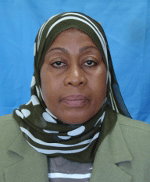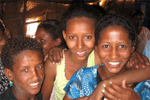Published on Fri, 2011-12-02 07:43
Civil society organizations that participated in the High Level Forum on Aid Effectiveness held this week in Busan, South Korea, regretted that the deal reached at the conference was not binding for all the donor countries, and the lack of a rights based approach, especially on gender, and of commitments on favorable conditions for the NGOs. |
Published on Thu, 2011-12-01 08:57
Tanzanian civil society organizations are unhappy with the government’s failure to ratify some international agreements that should guarantee the promotion of people’s development, said Armando Swanya, from the Southern African Human Rights NGO Network (SAHRiNGON), focal point of Social Watch in that country. Swenya cited the International Convention on Economic, Social and Cultural Rights of 1976, which the government of Tanzania had not ratified yet. This and other international agreements are important in pushing ahead efforts to fight against poverty, he said. |
Published on Thu, 2011-12-01 08:46
Greenhouse gas emissions embodied in Canadian exports of fossil fuels in 2009 were 15% greater than the emissions from all fossil fuel combustion within that North American country, and almost four times the emissions from extracting and processing fossil fuels in its territory, according to a study released this week by the Canadian Centre for Policy Alternatives (CCPA). |
Published on Tue, 2011-11-29 08:54
Egypt is holding the first phase of the parliamentary elections since Monday, in spite of the claims and recommendations to postpone them issued by political parties and civil society organizations, among them the Egyptian Association for Community Participation Enhancement (EACPE), focal point of Social Watch in this country. |
Published on Tue, 2011-11-29 08:44
The European Union (EU) must support the people of Eritrea after the government of that African country decided to terminate its ongoing EU aid programmes, said Mirjam van Reisen, chair of International Social Responsibility at Tilburg University and director of Europe External Policy Advisors (EEPA). |
SUSCRIBE TO OUR NEWSLETTER







